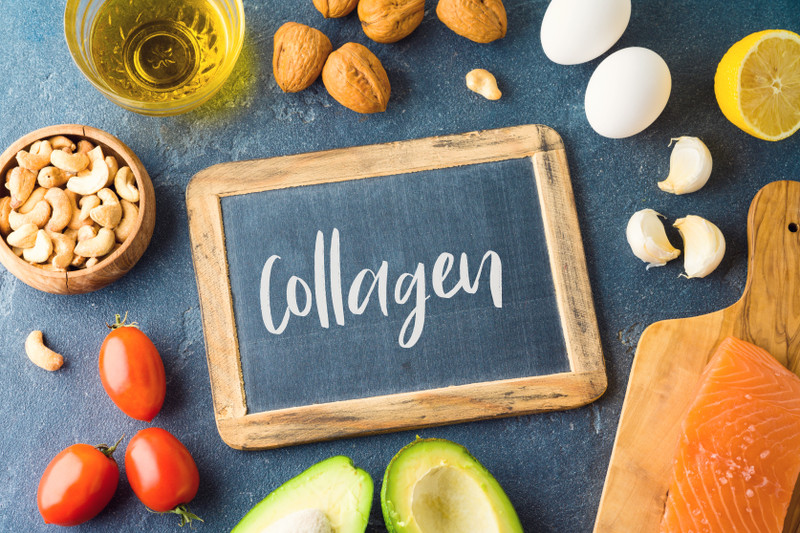Recovery is a vital part of any fitness routine or healing process. After exercise or an injury, the body works to repair muscles, joints, and connective tissues while reducing inflammation. Two key nutrients, collagen and vitamin C, play a significant role in this process by supporting tissue repair, reducing soreness, and enhancing overall recovery.
What Is Collagen?
Collagen is the most abundant protein in the body, providing structural support to the skin, muscles, tendons, ligaments, and bones. It acts as a scaffold, holding tissues together and maintaining their strength and flexibility.
During recovery, collagen production increases to repair damaged connective tissues. However, as we age, the body produces less collagen, which can slow the recovery process. Supplementing with collagen peptides can help restore these levels, promoting faster and more efficient healing.
How Collagen Supports Recovery
1. Repairs Connective Tissue
Collagen provides the building blocks needed to repair tendons, ligaments, and cartilage after exercise or injury. This is especially important for maintaining joint health and flexibility.
2. Strengthens Muscles
Collagen contributes to muscle repair and growth, which helps reduce post-workout soreness and support long-term strength gains.
3. Improves Joint Health
Collagen supplementation helps reduce joint discomfort by supporting the regeneration of cartilage and promoting lubrication in the joints.
4. Reduces Inflammation
Collagen contains amino acids like glycine and proline, which have anti-inflammatory properties, aiding in recovery by calming the body’s inflammatory response.
What Is Vitamin C?
Vitamin C is a water-soluble vitamin that acts as a powerful antioxidant. It’s essential for various bodily functions, including the production of collagen. Vitamin C is also critical for tissue repair and immune system support, both of which are vital during recovery.
How Vitamin C Supports Recovery
1. Boosts Collagen Production
Vitamin C is a co-factor for enzymes involved in collagen synthesis. Without it, your body cannot produce collagen efficiently, making it an essential nutrient for tissue repair and recovery.
2. Fights Oxidative Stress
Exercise and injuries produce free radicals, which can cause oxidative stress and damage cells. Vitamin C neutralizes these free radicals, protecting tissues and accelerating recovery.
3. Supports Immune Function
Vitamin C strengthens the immune system, helping your body fight off infections and inflammation during the recovery phase.
4. Promotes Wound Healing
Vitamin C plays a role in regenerating skin, tendons, and other tissues, making it crucial for recovering from injuries or surgical procedures.
How Collagen and Vitamin C Work Together
Collagen and vitamin C are a dynamic duo for recovery because they complement each other. Vitamin C is necessary for collagen synthesis, ensuring that your body has the tools it needs to repair and rebuild tissues. Without sufficient vitamin C, collagen production is impaired, slowing the healing process.
By taking collagen and vitamin C together, you create an optimal environment for recovery, whether you’re healing from a workout, an injury, or surgery.
Best Sources of Collagen and Vitamin C
Collagen
- Food Sources: Bone broth, chicken skin, fish skin, and gelatin.
- Supplements: Hydrolyzed collagen peptides are the most bioavailable form, making them easy for the body to absorb and utilize.
Recommended: Pure Encapsulations Collagen JS
Vitamin C
- Food Sources: Citrus fruits, strawberries, bell peppers, broccoli, and kiwi.
- Supplements: Vitamin C supplements are an excellent way to ensure you meet your daily needs, especially during recovery periods.
Recommended: DC Labs Vitamin C 500 mg
Tips for Maximizing Recovery with Collagen and Vitamin C
- Pair Them Together: Take collagen supplements alongside vitamin C to maximize their combined benefits.
- Time Your Intake: Consume collagen and vitamin C after your workout or during meals to support recovery.
- Stay Hydrated: Proper hydration enhances nutrient absorption and promotes faster healing.
- Incorporate Protein: Collagen is a protein, but don’t forget to include other protein sources in your diet to support muscle repair.
- Be Consistent: Regular supplementation with collagen and vitamin C will provide the best results over time.
A Note from Us
Collagen and vitamin C are essential nutrients that work together to repair tissues, reduce inflammation, and promote faster recovery. Whether you’re recovering from intense workouts or healing from an injury, incorporating high-quality supplements like Pure Encapsulations Collagen JS and DC Labs Vitamin C 500 mg into your routine can make a significant difference.

